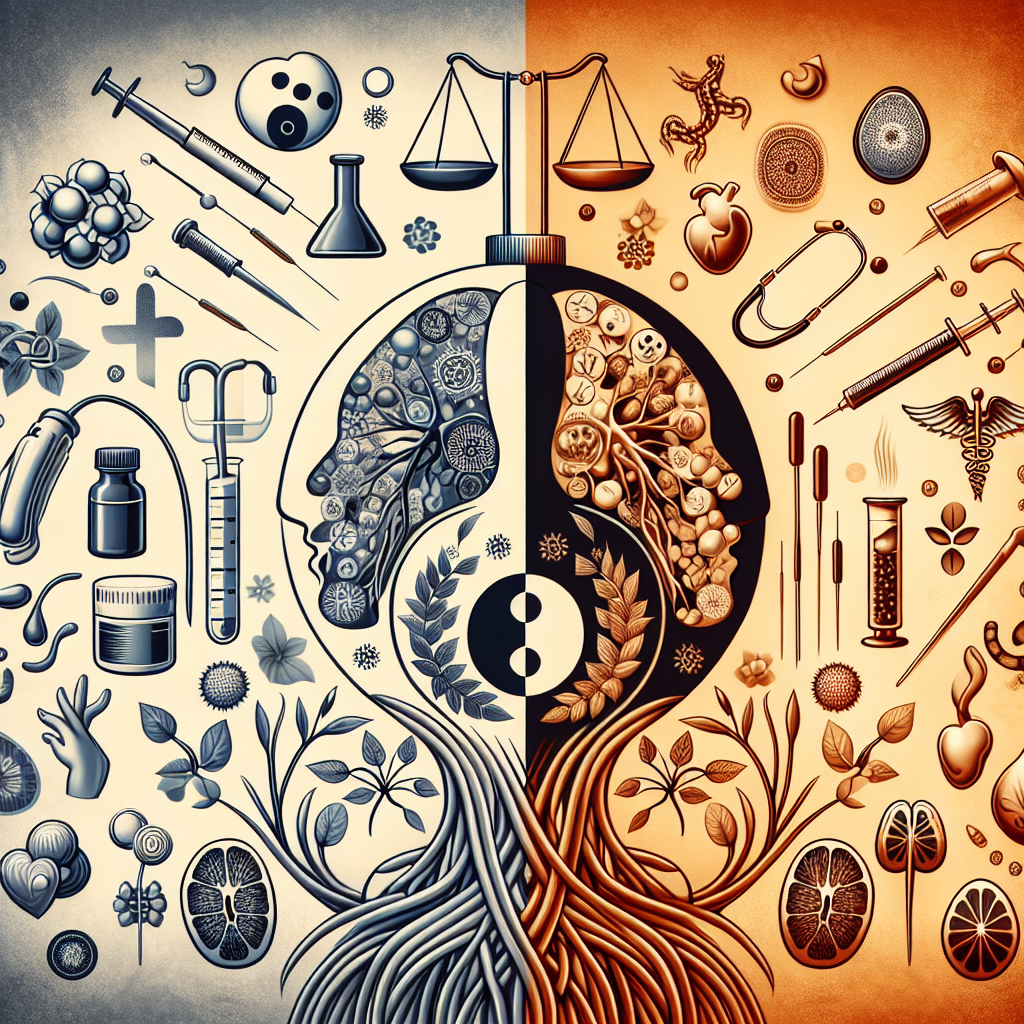Integrating Traditions: Western and Eastern Approaches to Treating Kidney Stones
Kidney stones, a hard mineral and acid salt deposit that forms inside the kidneys, are a common health concern worldwide, affecting about 1 in 10 people. These stones can cause severe pain, urinary issues, and, if untreated, can lead to further kidney problems. Given the prevalence and the intensity of the condition, there has been a continuous quest for effective treatments. This quest has led to a rich diversity of approaches, from the technologically advanced Western medical practices to the ancient wisdom of Eastern alternative therapies.
Western Medical Approaches to Treating Kidney Stones
In the Western medical paradigm, the treatment of kidney stones is highly focused on quick, often invasive interventions to remove the stones, combined with medication to manage pain and prevent recurrence. The most common treatments include:
1. Extracorporeal Shock Wave Lithotripsy (ESWL)
This non-invasive technique uses sound waves to break kidney stones into smaller pieces that can be passed through the urinary tract more easily. ESWL is particularly effective for stones less than 2 centimeters in size.
2. Ureteroscopy
For stones lodged in the ureter, a long, thin scope is inserted through the urethra and bladder into the ureter. Once the stone is located, it can be broken up using a laser or removed whole.
3. Percutaneous Nephrolithotomy
For larger stones, a small incision is made in the back, and a nephroscope is used to remove the stone directly from the kidney. This method is more invasive but effective for large kidney stones.
4. Medications
Western medicine also utilizes a variety of medications to manage and prevent kidney stones. Alpha-blockers, for example, can help stones pass more easily by relaxing the muscles in the ureter. Other medications aim to address the underlying conditions that lead to stone formation, such as diuretics for calcium stones and allopurinol for uric acid stones.
Eastern Alternative Approaches to Treating Kidney Stones
Eastern medicine, on the other hand, takes a more holistic and less invasive approach to the treatment of kidney stones, focusing on diet, herbal remedies, and lifestyle changes to dissolve stones and prevent their recurrence.
1. Traditional Chinese Medicine (TCM)
TCM approaches kidney stones through the lens of energy flow and balance within the body. Herbal remedies, such as Ji Nei Jin (reduces stone formation) and Shi Wei (beneficial for urinary tract issues), are often prescribed. Acupuncture and acupressure are also used to improve kidney function and relieve pain.
2. Ayurveda
This ancient Indian system of medicine uses dietary changes, herbal supplements, and yoga to treat kidney stones. Herbs like Pashanabheda (literally meaning ‘stone breaker’) and Gokshura are commonly used for their diuretic and stone-dissolving properties. Dietary recommendations might include avoiding foods that are high in oxalates and increasing water intake.
3. Hydration Therapy
Though also recommended in Western medicine, Eastern practices particularly emphasize the importance of hydration. Increased water intake is seen as essential not just for helping to pass kidney stones but also for preventing their formation by diluting the substances in the urine that lead to stones.
Integrating Western and Eastern Approaches
The integration of Western and Eastern approaches can provide a more comprehensive and personalized treatment plan for individuals suffering from kidney stones. While Western medicine offers quick and effective techniques for removing stones, Eastern practices offer sustainable lifestyle and dietary changes that can help prevent future occurrences.
1. Combining Treatments for Optimal Outcomes
For example, a patient undergoing ESWL could also adopt Ayurvedic dietary recommendations to prevent the recurrence of stones. Similarly, someone taking medication to prevent stones might benefit from acupuncture to manage pain and improve kidney function.
2. Prevention through Lifestyle and Dietary Changes
Both Eastern and Western traditions agree on the importance of certain lifestyle and dietary changes for the prevention of kidney stones. This includes staying well-hydrated, maintaining a healthy weight, reducing salt intake, and eating a diet rich in fruits and vegetables while limiting foods high in oxalates and animal proteins.
3. Patient Education and Empowerment
An integrated approach also involves educating patients about the causes of kidney stones, the importance of adherence to treatment plans, and the benefits of combining therapies from both traditions. This empowerment allows patients to take an active role in their recovery and prevention strategies.
Conclusion
Kidney stones are a multifaceted health issue that can benefit from the strengths of both Western and Eastern medical traditions. While Western medicine offers effective acute treatments for kidney stones, Eastern approaches provide valuable insights into prevention and holistic management. By integrating these practices, healthcare providers can offer a more rounded and effective treatment plan that not only addresses the immediate problem but also reduces the likelihood of recurrence, ultimately leading to better patient outcomes and improved quality of life.
As the global exchange of medical knowledge continues to grow, this integration of diverse healing traditions can lead to more innovative, effective, and personalized healthcare solutions, not just for kidney stones but for a wide range of health issues.

